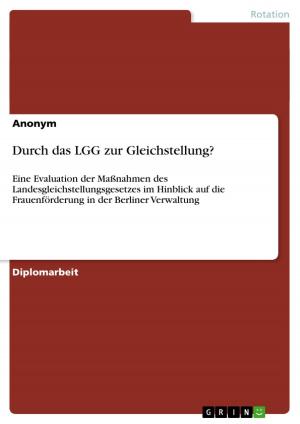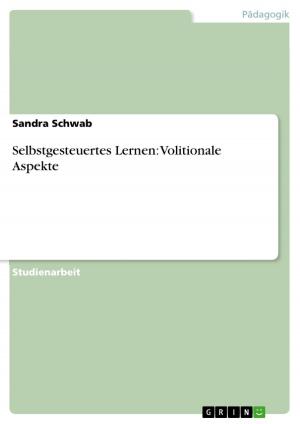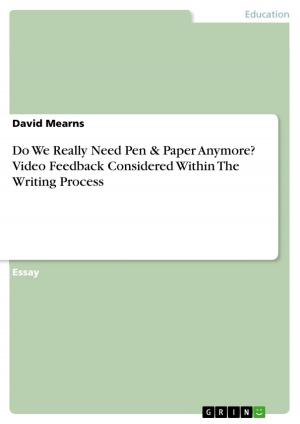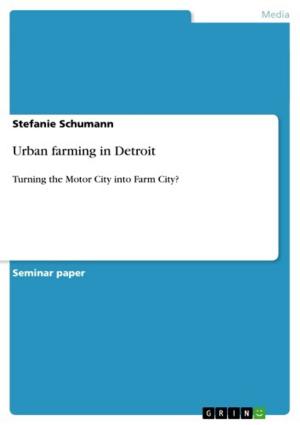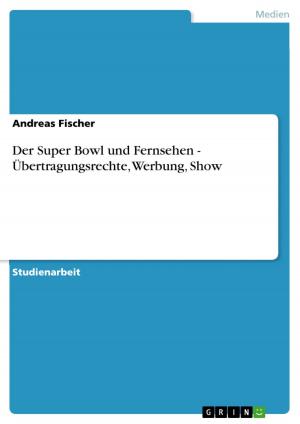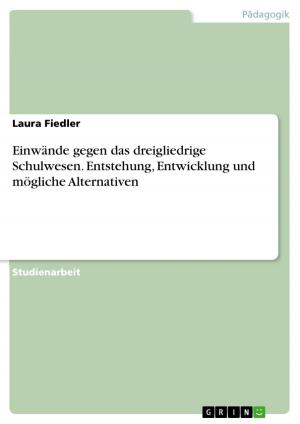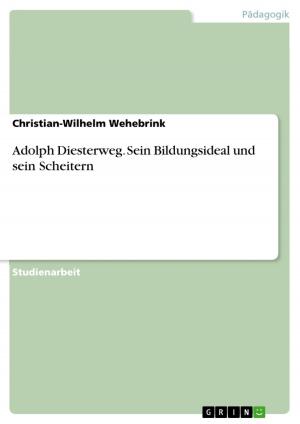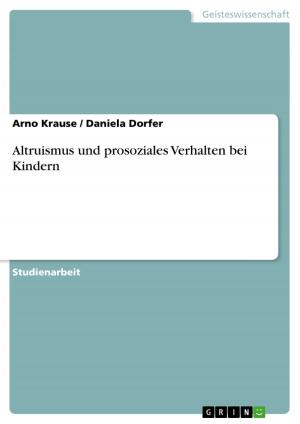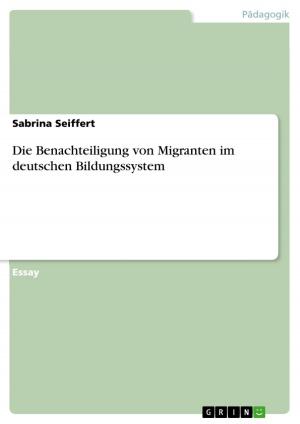Are Edgar Allan Poe's pathological characters to be identified with the authors own 'tortured psyche'?
Nonfiction, Entertainment, Drama, Anthologies| Author: | Sebastian Langner | ISBN: | 9783656758372 |
| Publisher: | GRIN Verlag | Publication: | October 1, 2014 |
| Imprint: | GRIN Verlag | Language: | English |
| Author: | Sebastian Langner |
| ISBN: | 9783656758372 |
| Publisher: | GRIN Verlag |
| Publication: | October 1, 2014 |
| Imprint: | GRIN Verlag |
| Language: | English |
Seminar paper from the year 2011 in the subject American Studies - Literature, grade: 1,0, University of Constance, course: American Literary and Cultural Theory - Leslie Fiedler, language: English, abstract: In 1960, Leslie A. Fiedler published his most influential and controversial book 'Love and Death in the American Novel'. Elaborating on a theory he had developed as early as 19481, Fiedler proclaimed his thesis of an 'innocent interracial homosexuality'and the generally dysfunctional treatment of American authors of the love between man and woman. In contrast to the New Criticism-school that had been prevailing until the 1940s, and saw the text alone as the sole basis for literary criticism, Fiedler tries to incorporate biographical information on the author and insights in his sociocultural environment into his analysis. Surprisingly, his examination of Edgar Allan Poe's oeuvre turns out as curtly as it is simplifying. He stylizes Poe as the dark side of the American dream, a depressed and depressing madman, incarnating his fantasies into stories of dubious merit. Being an ardent opponent of the New Criticism-school, Fiedler cannot help but relate the choice of Poe's themes and characters solely to the author himself, stating that 'in Poe the incest theme belongs to the private world of his own tortured psyche [...].' For Fiedler, 'The odd syndrome of child -love, necrophilia, and incest in Poe is too personal and pathological to shed much light on the general meaning of the latter theme in American literature and life.'4 Instead of treating Poe as a singularity worth further analysis, he dismisses the author's work as the questionable fancies of a mentally deranged. But the indisputable recurrence of the above-mentioned themes in Poe's work begs the question: Is Leslie Fiedler right? Are Poe's pathological characters to be identified with the author and his own 'tortured psyche'? To answer that question, and possibly to rebut Fiedler's theory will be the aim of this paper.
Seminar paper from the year 2011 in the subject American Studies - Literature, grade: 1,0, University of Constance, course: American Literary and Cultural Theory - Leslie Fiedler, language: English, abstract: In 1960, Leslie A. Fiedler published his most influential and controversial book 'Love and Death in the American Novel'. Elaborating on a theory he had developed as early as 19481, Fiedler proclaimed his thesis of an 'innocent interracial homosexuality'and the generally dysfunctional treatment of American authors of the love between man and woman. In contrast to the New Criticism-school that had been prevailing until the 1940s, and saw the text alone as the sole basis for literary criticism, Fiedler tries to incorporate biographical information on the author and insights in his sociocultural environment into his analysis. Surprisingly, his examination of Edgar Allan Poe's oeuvre turns out as curtly as it is simplifying. He stylizes Poe as the dark side of the American dream, a depressed and depressing madman, incarnating his fantasies into stories of dubious merit. Being an ardent opponent of the New Criticism-school, Fiedler cannot help but relate the choice of Poe's themes and characters solely to the author himself, stating that 'in Poe the incest theme belongs to the private world of his own tortured psyche [...].' For Fiedler, 'The odd syndrome of child -love, necrophilia, and incest in Poe is too personal and pathological to shed much light on the general meaning of the latter theme in American literature and life.'4 Instead of treating Poe as a singularity worth further analysis, he dismisses the author's work as the questionable fancies of a mentally deranged. But the indisputable recurrence of the above-mentioned themes in Poe's work begs the question: Is Leslie Fiedler right? Are Poe's pathological characters to be identified with the author and his own 'tortured psyche'? To answer that question, and possibly to rebut Fiedler's theory will be the aim of this paper.


